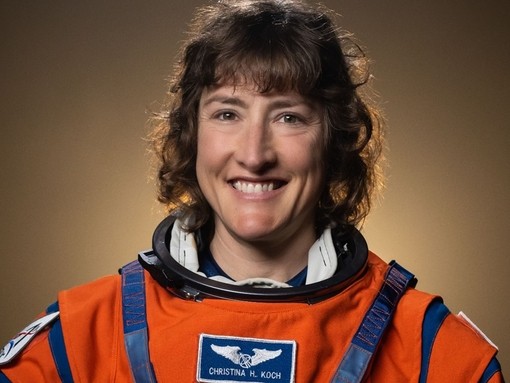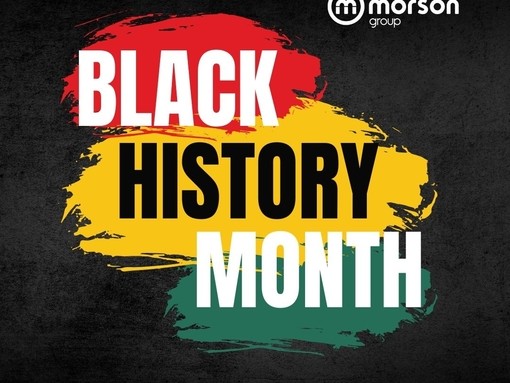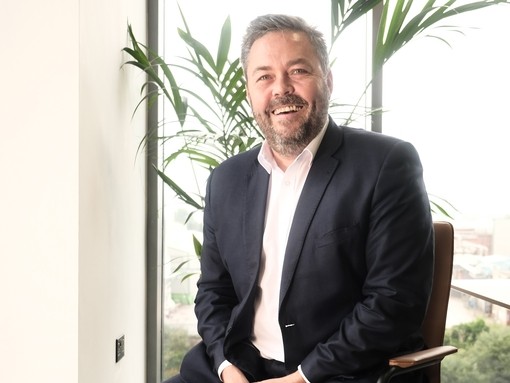
Inspiring Diversity and Inclusion in Construction
Over 200 construction professionals gathered at the Hilton, Deansgate, Manchester, for the Inspire Summit, which is continuing to act as a platform for encouraging debate around diversity and inclusion in the construction sector.
The event, now in its third year, was hosted by award-winning journalist and broadcaster Marverine Cole and was attended by men and women working in construction, as well as students hoping to join the industry.
Creating cultures where everyone can succeed was a focus for this year’s conference, which was split into three sections: personal development, recruitment and retention.
Sam Price, head of client engagement at Morson and Inspire Summit panellist gives her insights on the key themes of the conference. Sam explains how analysing the recruitment process, championing collaboration and making small meaningful steps will create a real difference in addressing gender inequality within the construction industry:
“In an increasingly competitive skills market employers need to focus on widening talent pools rather than limiting the number of applicants. Conversations at the Summit concluded that the recruitment journey is a critical point where the impact of unconscious bias and/or preconceived barriers can be assessed and, consequently, successfully mitigated.
Rebecca Thompson, founder and director of Thompson Heritage Consultancy and fellow and past president of the Chartered Institute of Building opened the conference.
She talked about her experiences starting out in the sector and explained the importance of high ethical standards from professional bodies.
Experts and industry leaders debated a wide range of topics from tackling unconscious bias and implementing inclusive recruitment strategies, to attracting a more diverse workforce for the future and building the business case for diversity.
Sam continues “With many companies implementing unconscious bias training, it was identified that this alone is not enough as a standalone to attract and retain diverse workforces. For roles to be as accessible as possible, attention must be paid to job descriptions and candidate screening processes to make them clear and specific. For example, providing comprehensive details around how much travel is required within the job detail, will give parents and carers a much better idea of whether that role is the right fit.
Moreover, established team dynamics which need to be challenged need a more integrated approach when it comes to supporting to ensure that new employees feel included and supported from the outset of their employment. We heard first hand the challenges faced by Katie Keheller (crane operator) when she first started on site. Therefore, monitoring, measuring and reviewing these techniques and initiatives is essential to assess the impact and, most importantly, drive continuous improvement.”
Fiona Triller, programme director of Creating Inclusive Industries talked about how individuals form social stereotypes about certain groups of people outside of their conscious awareness.
“Every single one of us has a bias based on our life experiences,” she said.
“We are constantly comparing ourselves to others which can hold us back,” said resilience and talent coach Anthony Taylor who asked the audience to think about their personal brand and what it says about them.
Mark McBride-Wright, founder of EqualEngineers, talked about positive action and how a more inclusive conversation around diversity can be curated. He also shared some findings from EqualEngineers’ masculinity in Engineering Survey.
There was much discussion among panellists over opening up the industry, breaking down barriers, creating inclusive workplaces and retention of staff.
Sam added “The Inspire Summit addressed the need for more collaboration between all elements of the industry to create a positive framework of action. Only the sum of the united efforts between regulating bodies, schools, companies and their supply chains will enable the total transformation needed to diversify the workforce that powers the industry. However, it is essential that the messages crafted by these partnerships are tailored to, and reflective of, the communities they are communicating with. To inspire advocacy, create aspiration and incite change, we cannot continue to use the same methodologies, communicate the same messages and expect different results.”
There was once again a focus on the next generation of construction workers with free places at the summit for students.
Several students also took part in a panel session led by Julian Buttery, senior employer engagement manager at the Careers and Enterprise Company, where they talked about their experiences in the sector.
“Lots of teachers don’t know a lot about the construction sector and the available roles,” said University of Salford student Racheal Umunna.
There was much discussion around attracting more young people into the industry, as well as how to educate teachers, careers advisers and parents about the breadth of career opportunities available in construction.
“In Europe engineers are classed with doctors and surgeons and given a higher social profile than they are in this country,” panellist Neil Conlon, business development manager at Conlon Construction told delegates.
The conference was rounded off with a session led by Joscelyne Shaw, director of the strategy at Mates in Mind, a charity that was set up to raise awareness, address the stigma of poor mental health and promote positive mental wellbeing in construction and related industries across the UK.
Outlining Mates in Minds’ achievements and the work that it has done since it was set up two years ago, she focused on promoting cultures of positive wellbeing throughout the industry.
She told delegates that 3 out of 5 employees experience mental health issues because of work and talked about changing behaviours.
The Summit was supported by British Board of Agrément, CABE, the CIOB, easy-trim, Housing Diversity Network, the National Association of Women in Construction, Procure Plus, Redrow Homes and RICS.
As well as attending the conference, delegates had the chance to talk to a diverse selection of companies, which were showcasing their work in the exhibition space.
The Summit was followed by the Inspire Awards, celebrating diversity and inclusion in UK construction, engineering & housing.
Sam concludes “At Morson, we work in sectors hardest hit by gender imbalances. We see opportunities in the construction industry still stigmatised as ‘dirty jobs’, which presents an obstacle for many applicants. One technique we employ to break down this barrier to entry and reverse opinion is role modelling, which aims to showcase the varied and fulfilling careers available in the industry.
The Inspire Summit demonstrated that there is no one tactic which will create long-lasting change. Instead, the extension of extra focused effort will empower small turns of the dial which will create diverse workforces of the future”
For more information on Morson’s commitment to diversity check out our Diversity Portal. Or to find your next opportunity search jobs here.















